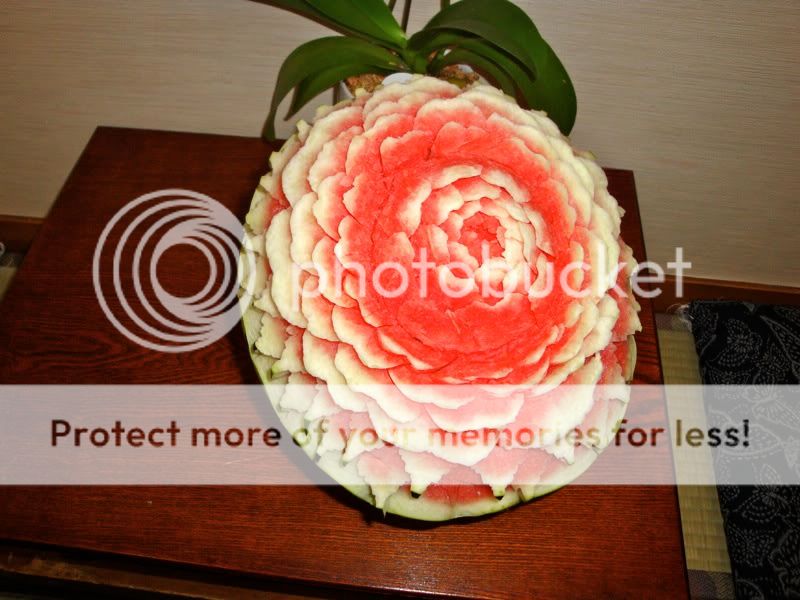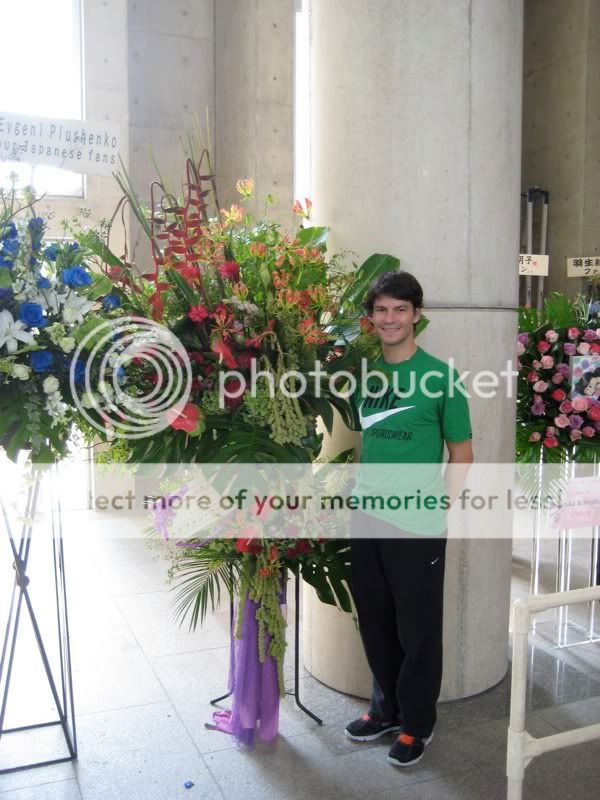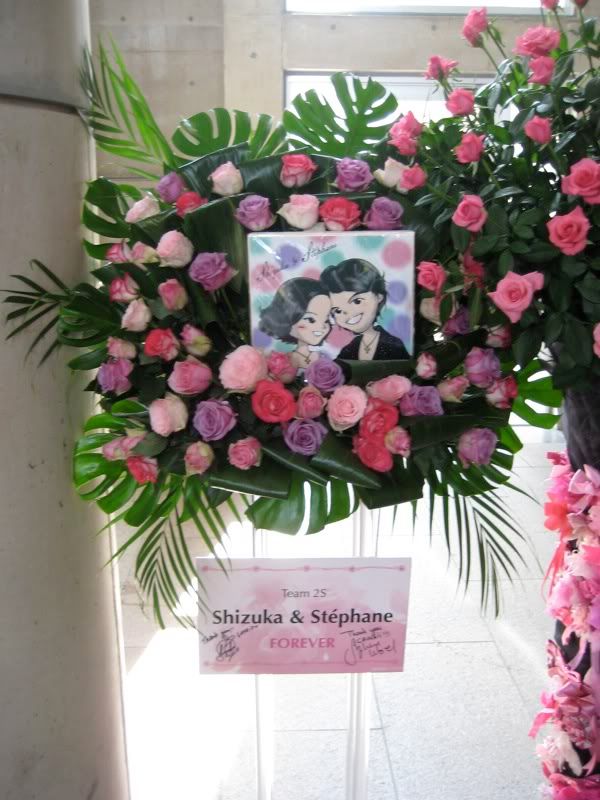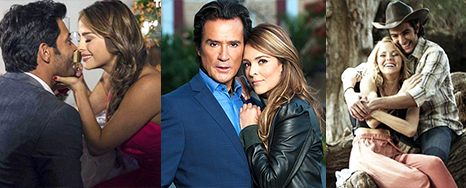STÉPHANE LAMBIEL: ART CANNOT BE EXPRESSED BY NUMBERS
Photo by Natasha Ponarina
Interview by Elena Vaitzekhovskaya, Sport-Express: wwwsport-express.ru/newspaper/2010-10-21/8_1/
"Don't worry, Stephane will be here in time. He is absolutely reliable and punctual in keeping appointments or scheduled events - you know that as well as I do." - that's what my old friend Ari Zakarian said immediately after greetings. After that famous manager added with a bit of envy in his voice: "A person of my profession can only dream of a client like this. "
Lambiel's visit to the Russian capital was organized by Ilya Averbukh's "Ice Symphony", and the schedule of three days he spent in Moscow was very tight. Lambiel's longtime agent Oliver Honer stayed in Switzerland, and Zakarian has to take over his duties (and not for the first time). Actually, he almost immediately gave them up - in respect of our interview — having said: "Okay, you know each other well. I won't interrupt."
*
Waiting for the skater, who quit competitive skating right after the Olympic Games in Vancouver, I thought for some reason that at the time of the Games in Sochi, Lambiel will be only 28 years old. And that he might compete at his fourth Olympics. If he wanted to. Why? Many people still cannot fully realize that figure skating can exist without Lambiel. After all, he did come back after his retirement in 2009, when it seemed that he left the world of competitions forever?
My musings were interrupted by the appearance of wrapped in a warm scarf and ready for a walk Swiss:
Hello! I've realized that I was very lucky with the weather. And for once I finally have a chance to see Moscow.
How do you feel about the trips like this? Is it a work or a pleasure for you ?
I like to travel. Traveling to competitions or long show tours is quite different. Sometimes the schedule is so tight that it leaves no opportunity to see something. If the possibility presents itself, I love just walking through the streets and look at the houses. Watch how the architecture of the new buildings blends with the old. Moscow is an interesting city in this regard. Very gentle, pastel-colored old buildings and sharp, I would say, aggressive architecture of "skyscrapers." I noticed it back when I came to your town to the Grand Prix events."
Right after Vancouver Olympics you have decided to quit the sport. Do you remember what you were thinking after the end of the competition?
Actually, those were horrible thoughts. And a terrible state of mind. I realized that my ultimate goal for several years was suddenly in the past. I have not achieved what I wanted, but the opportunity to do something was also left behind. It was completely unclear what to do next. Where to go, what to do. Complete emotional devastation. On the one hand, I kind of dreamed about how I would begin perfoming in the shows after the Games, that there would be a lot of shows, but at that time I could not even figure out whether I wanted it. And what did I want at all. You see, I cannot even now articulate an answer properly.
Nevertheless, you indeed started performing in the shows immediately after the Games, and you have a lot of shows.
Yes. I'm constantly on a road and I was very surprised, by the way, to realize that I need to learn to live without competitions. Right now it is unusual. But it is a good kind of unusual, I would say.
What do you mean?
Well, I had many fans when I competed. Maybe one of the reasons of my post-olympic depression was the fear to lose my fans. Like I would leave the sport and they all would remain in the old competitive life. And I was extremely shocked and very surprised (and I'm saying it now absolutely honestly) when I realized that the fans continue to support me no less despite the fact that I quit competetive skating.
*
Do you miss competitions, just a little bit?
No, not really. I have enough titles, I love what I do and I would like to improve my skating in its artistic part. At the same time I love to watch others to perform. I was eagerly waiting for the season to begin, now I try not to miss any interesting competition, I watch the programs, analyze scores - because I never really could do it when I was still training and competing myself. More precisely, I watched figure skating from the inside. And just now I realized that looking at it from the outside is much more interesting.
Why have you returned before the Olympic Games then? You had won already the titles which you mentioned, and I believe you had enough commercial proposals.
Hmm ... Good question. Once I became the silver medalist in Turin, I began to dream desperately of Vancouver. I dreamt, I think, from that very moment when I got up on the podium. For some time everything else was completely forgotten. I woke up with the idea that I was getting ready for Vancouver, I thought about it at practice, counted remaining days, and then, after the injury, I was close to the insanity. Because it mostly took away the sense of my existence. It has taken some time to realize that life still goes on, at the same time I was getting treatment, and as soon as I understood that my health allows me to resume serious training, the dream of Vancouver immediately returned. It is so difficult to find right words. You are asking now: "Why?" And I cannot explain why. But I know that I dreamt about it.
Perhaps because Olympic Games are special event?
It is certainly true. In 2002, when I flew to Salt Lake City, I was 16 years old, I had never visited the U.S., so for me everything was like one big Disneyland. Every day brought some new knowledge, new, extremely positive emotions, while I always thought that all that was happening not with me, but like on a distance. Like in the movies.
In Turin, it was completely different. Games became an enormous stress. Perhaps the difference was that in Salt Lake City I was as a baby freshman, while in Turin I realized that I could fight for a medal. The tension was enormous, and it didn't lessen even for a second whether I was training, having rest or walking around the city. Although I've never walked there, I think. I remember very well the end of the competition and how I was thinking that those days and that silver medal, which was won in such a crazy competition — those were really the best and happiest days of my life. That I might have been the happiest man on earth. I understood that, but did not feel anything even close to happiness - it was hard to get back to normal after all the stress. And as for Vancouver, I've already told. I'm not sure if I would ever want to go through all that again.
*
Now, as an artist, you maintain the relationship with your former coach Peter Grütter?
Sure. With him, and with Salome (Salome Brunner - Lambiel's choreographer. - EV). You probably will understand me as an athlete: there can be a lot of coaches in the life of every sportsman, but among them there are always those people who are as important for you as your parents, if not more. And not just because you spend more time with them than at home. For me, these people will always be Peter and Salome.
I am really glad that we parted our ways for a while. Sometimes you begin to truly understand how much that person means to you only after you have parted. That's what happened with me and Peter and Salome. Later we even discussed it. And we came to the conclusion that it happens in the family as well: until you leave home for long, you don't realize how much the word 'home' means".
Would you like to be such kind of a coach for someone?
I know that at the moment I'm not ready for that. Firstly, I really love what I do now. I would like to skate for as long as I can. And for me, to be a coach means to devote 100 percent of your time and energy to another person. At least I've always felt that Grütter regarded coaching this way. When he fell awkwardly and broke his hip, he then dragged himself to the rink almost immediately after surgery. I almost wept seeing him moving around with two crutches, like a crab. And after a couple of months Peter was on the ice wearing skates.
But you had begun quite actively to work with other skaters as a choreographer. It is interesting to try and fit a program into pretty strict rules?
It is not even the most difficult part. The worst is that these rules are changing every year. And, well ...the attempts to translate into points something that I myself consider to be an art — yes, it annoys me. Art cannot be expressed by numbers.
Why? It's quite possible. If you strive to become a World champion or Olympic champion, you have to play by these rules. Whether you want to or not.
I don't, for sure. Although I totally admit that the new system was meant to be good. As something that would allow much more precise estimation of some specific things. Just for now, it does not really work, I think. No need to name names, but you also know that some athletes have no problem with jumps, but the rest becomes problem. Constant attempts to raise the technical requirements even higher leads to the fact that an artistic performance is in shatters. If someone can still keep the integrity of the image, choreography, expression, then the person gets the same average scores like everyone else. And it's very difficult to understand the principles of scoring. And do you know why? Because it is impossible to explain. That's what I had in mind when I talked about art and numbers.
Still, for me it's pleasant work. Salome has taught me the inner choreographic freedom. And the ability to hear music. And it always gives plenty of room for creativity.
Do I understand correctly, that with such an approach to skating jumps must have been annoying you?
Not at all. While I competed, the jumps were for me like a challenge. For example, I didn't do very well cascades with triple loop, and at the time I tried to include them more often. I always liked to dig into the intricacies of technique, to understand how the jump works.
What do you usually think about on the ice?
Nothing. At all. When I'm getting on the ice, my head is a whirlwind of thousand thoughts. Some of them technical, some has nothing to do with figure skating at all. But once the music starts, my head is empty. And until I've finished, I don't hear what is happening around. Strange feeling actually - like meditation. No other occupation is capable to clear my mind like skating does.
But the skater has to keep control of many things: entrances to elements, landings, body position on the ice and in the air ...
Why? I work on all this at practice by repeating it hundreds of times. Until it's automatic. If I suddenly find myself thinking about the element during program, it signals that I should work on this element more.
*
To be a public persona now, in the Internet age, is not always pleasant. Have you ever read any crap about yourself?
- I don't need Internet to understand that I have flaws, that I can make mistakes, lose, or do something wrong. I'm sure I annoy someone - it is normal. But I do not care about such things, to be honest. I am very attentive to criticism when it is argumented. In this case, it doesn't even matter whether it comes from someone I care for or from a complete stranger. In any case, I try to listen and make conclusions. If a person simply seeks a way to get out their own negativity, then it doesn't hurt.
You have a good nervous system.
Apparently, yes. In fact, I do not feel the need to read what they write about me. Why? Does it tell me something about me that I currently do not know? Of course, this also happens, but why take it seriously?
What kind of education did you get, by the way?
Not any. If I get a little more free time, I gladly would go to university. To study art, for example. Or foreign languages. Or sports. So I feel the need to learn. But now I really do not have time. I don't want to go to university and pretend that I study. Ever since childhood, if I start to do something, then I do it one hundred percent.
This is also what your coach have taught you?
No, Mom. She was always very strict with us. Probably, it is necessary when you have three children. Sometimes it hurt, but when I grew up, I realized that mom had actually very much invested in us and taught us many things. Independence, responsibility, ability to pursue our goals.
What do you prefer to do if you have a day off?
I wish I could remember when I had my last day off. Though this summer I was home for a long time - five days. But it is such a rare occurence. During weekend I love to just lie in bed, I love to cook. I love to read cookbooks. For some time I like Thai food. Soup, Thai chicken, meat ... And I love to bake cakes. I took it from my grandmother, I guess. She lives not far from Lisbon and she cooks really cool. To my arrival she always bakes Portuguese cakes. And she always brings them with her when she comes to Switzerland for Christmas. I like fondue, although I cannot eat cheese in its usual form.
Your favorite meal?
I'm easy: except cheese, I eat absolutely everything with pleasure.
Isn't your popularity a problem in everyday life?
Never.
It's hard to believe. Haven't you ever gone out and found yourself in a crowd of girls ready to tear you to pieces to show you their love?
Well, it happens from time to time, but it is normal. Let me explain: in my opinion, I am very lucky that I have the opportunity to live the life I live. I must pay for it in some way. I'm paying by sharing certain part of my life with people around me. Not because someone makes me to do it, but because I feel such a need. I never refused to communicate with people under some false pretenses. If I suddenly feel that I am ready to do it, I will probably be the first to say myself: "Whoa, boy, if you are starting to feel annoyed by the attention of people who love you, do something else!"















 SVIESC!!!
SVIESC!!! Ok es tikai atsevišķas frāzes sapratu.
Ok es tikai atsevišķas frāzes sapratu.

